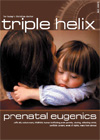Alec Bookless
(q Guy's 1935; d 22 March 2003)
Alec studied at Cambridge and Guy's, developing a lasting interest in the Church Mission Society. After qualifying he joined a medical practice near Sanderstead, Surrey and married Daphne with whom he had three daughters. During the Second World War Alec served in the medical corps in Europe and was evacuated from Dunkirk in 1940. He was sent to hospitals in Egypt and Sudan, but returned to Britain in 1945 and rejoined his practice. He continued as a member of the Territorial Army, eventually becoming a Lieutenant Colonel in charge of the medical division.
Alec was well known for seeing his patients as people rather than cases, remembering details of their families and interests. His relationship with his patients continued after retirement: he would visit many at home and in hospital.
Alec had many friends and interests. He loved walking in the countryside and taking holidays in Scotland. His Christian faith shone through his attitudes and his character. He is survived by his daughters Margaret and Hilary.
Barbara Hill and David Bookless
John Hammerton
(q Glasgow 1938; d 6 December 2005)
A GP in Clay Cross from 1940-1980, John campaigned for the advancement of general practice as a specialty and was involved in the Royal College of General Practitioners from its early days. In the early 1970s he started the Chesterfield Vocational Training Scheme and was its first course organiser. He felt very strongly that medical practice meant giving oneself to the community and particularly to the patients one cared for. He served as a local councillor for twelve years, then as a county councillor for three years; he was also a Justice of the Peace. John also served CMF as president from 1973 to 1975. After retirement he served on the Synod of the Church of England. He leaves a wife, Helen, four children, twelve grandchildren and five great-grandchildren.
Bill Hammerton
Former CMF General Secretary Keith Sanders adds: John gave me consistent support and encouragement, being very much aware that the Christian faith should and could be demonstrated, not only in what one did but also in how one practised. John demonstrated a very wide understanding of how the fear and love of God could be seen. He was of a strong gentle spirit, very much to be trusted.
Kevin Kelly
(q Guy's 1953; d 13 January 2005)
Kevin joined the Royal Navy in 1942. Following the war he trained as a doctor and became a general practitioner, working in Redhill, Surrey for 38 years. His warm, personal style and attention to the welfare of others, as well as his skill as a doctor, were much appreciated. Somebody summed it up by saying that as soon as Kevin turned up they felt reassured. Both he and his late wife Iona were counsellors for many years with the Catholic Marriage Advisory Council. Kevin was also medical director of the annual diocesan pilgrimage to Lourdes. When he retired they went to work at a hospital in St Lucia. In recognition of his work with the church, Kevin was nominated for a Papal Order as a Knight of St Gregory; he also joined the Equestrian Order of the Holy Sepulchre. Kevin took these papal knighthoods as a great honour. He was a man of vitality and generosity, devoted to helping others both through medicine and the church. He connected with people from a huge range of backgrounds in such an easy way that he would immediately make them feel he was a friend. He leaves four children and 14 grandchildren.
Seán Kelly
Paul Robert
(q Royal Free 1957; d 25 May 2005)
Paul Robert was born in Morges, Switzerland. After completing his basic medical studies in Switzerland, he spent three years at the Royal Free Hospital in London. He married Paulette Matile, a nurse and accomplished musician. Together they went to South Africa in 1957 as medical missionaries. Paul started his work at Elim Hospital in the then Northern Transvaal. Later he took over as superintendent of Masana Hospital. In 1983 he accepted the onerous job of Secretary for Health for the Gazankulu Homeland. With the dissolution of the homelands, he was involved in reintegrating health services into the National Department of Health. Wherever he worked, he and Paulette were actively involved in the church and community affairs. In addition to his administrative capabilities, Paul had a wide range of the clinical skills needed in rural areas. All with whom he came into contact with were struck by his dedication and integrity, and his devotion to his mission to help others. After retirement, the Roberts returned to Switzerland to be near their families. Paul nevertheless continued to be active in many things. All his colleagues, friends and those whose lives he touched extend their deepest condolences to Paulette, their three daughters and their families.
Pierre Jaques, for the South African Medical Journal































